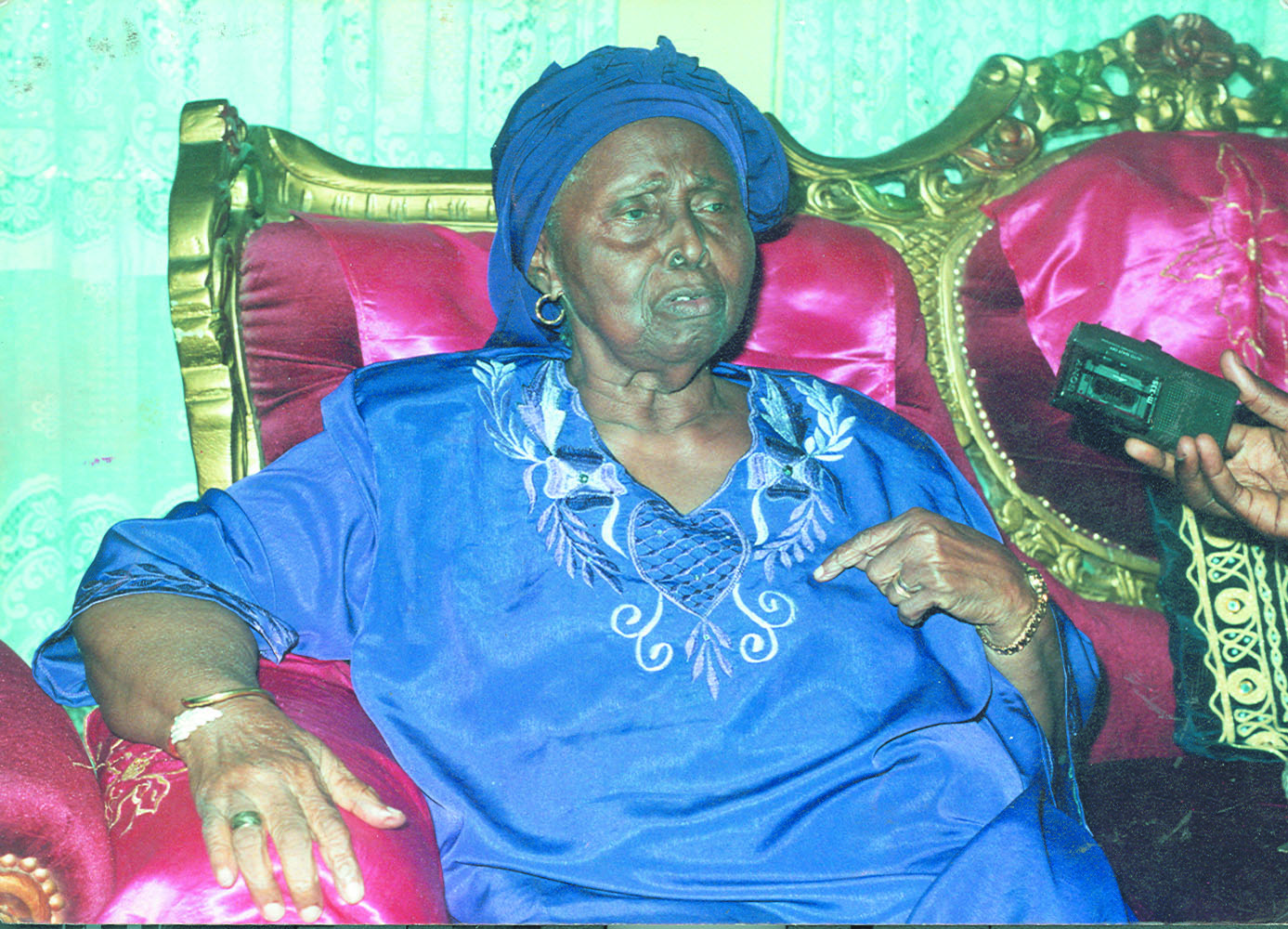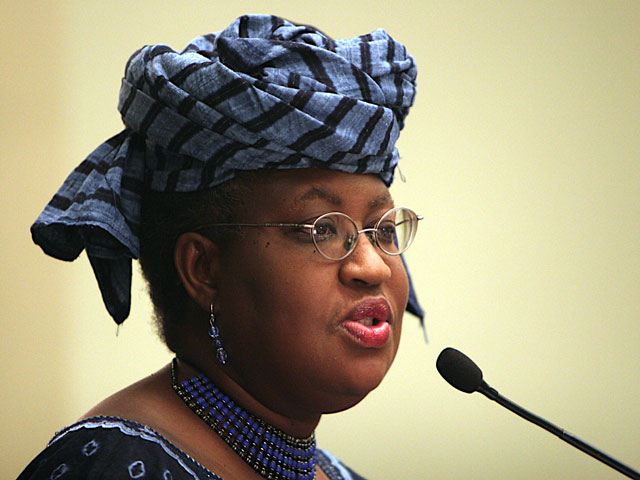For 99 years and 10 months, Hannah Idowu Dideolu (HID) Awolowo somewhat rubbished the invincibility of death. In the past, there were many rumours of her death; and after each one, it turned out that HID, as she was fondly known, was alive after all. Although her frail looks betrayed her advancement in age, her soul came off as immortal – always able to rejuvenate itself after every major scare.
That was until Saturday September 19, 2015. As events of the day have proven, there is just no end yet to the truth that death is the end that awaits every man. HID would have clocked 100 on November 25, and the planning committee had already perfected the programmes of the day and the distribution of invitation cards.
Born into a modest family in Ikenne, Ogun state, HID will be most remembered as the widow of widely-respected Obafemi Awolowo, former premier of Western Nigeria. But not many people know that Awolowo may never have married Hannah Dideolu.
A MARRIAGE NOT MEANT TO BE
The first time late Obafemi Awolowo made an attempt at marriage, it wasn’t with HID. He had wanted to marry a lady named Augusta Omoriola Onafowokan, but her father objected. This story is well told by Insa Nolte in his book, Obafemi Awolowo and the Making of Remo: The Local Politics of a Nigerian Nationalist.
Advertisement
Nolte writes: Like many men of his generation, Obafemi Awolowo looked for a wife from his own community, and specifically the town of Ikenne. Born in 1915, Augusta Omoriola Onafowokan was the first Ikenne girl to attend a secondary school, and after her completion of the CMS Seminary in Lagos, she worked at the Colonial Secretariat as a clerk.
Augusta was the daughter of Gabriel Onafowokan, the Native Administration Treasurer of Ijebu Province, and at that time one of Ikenne’s most prominent citizens. Like Awolowo, Onafowokan was a child of early Christian converts and a highly educated patron of St Saviour’s Church, Ikenne. As the holder of one of the most highly paid administrative posts available to locals, he was a respected member of the local elite and a man of political weight.
In 1930, before his involvement in the bitter politics surrounding local opposition to Awùjalè Adesanya, Onafowokan had been offered the throne of Ikenne. However, by that time his administrative career was so successful that he rejected it, pointing out that his income and influence as a ruler – a position interesting enough to promote bitter disputes over the throne in many communities – would be much lower than in his current position. When Awolowo asked for Augusta’s hand in marriage, her father turned him down. According to Oyesanya (1992: 38), Augusta was already engaged to another man and her father had little choice in the matter….
Advertisement
It is likely that Onafowokan was also swayed by other considerations. Described by his children as a strict disciplinarian (Oyesanya 1992: 49), Onafowokan was a man who brooked no opposition, and Awolowo’s self-assured demeanour and unwillingness to supplicate others may have piqued him. Moreover, Awolowo’s father had died young and left him with few material resources while Onafowokan, like most early converts and their descendants, had used his possession of western education and literacy to establish himself economically.
Awolowo subsequently dated and married HID. Decades into the marriage, it would be hard to imagine him harbouring hard feelings about his failure to marry Augusta. Many men now describe their wives as their “jewel of inestimable value”, but not many know that the phrase is indeed Awo’s coinage; it was his fondest way of describing the woman he eventually married.
JEWEL OF INESTIMABLE BACKING
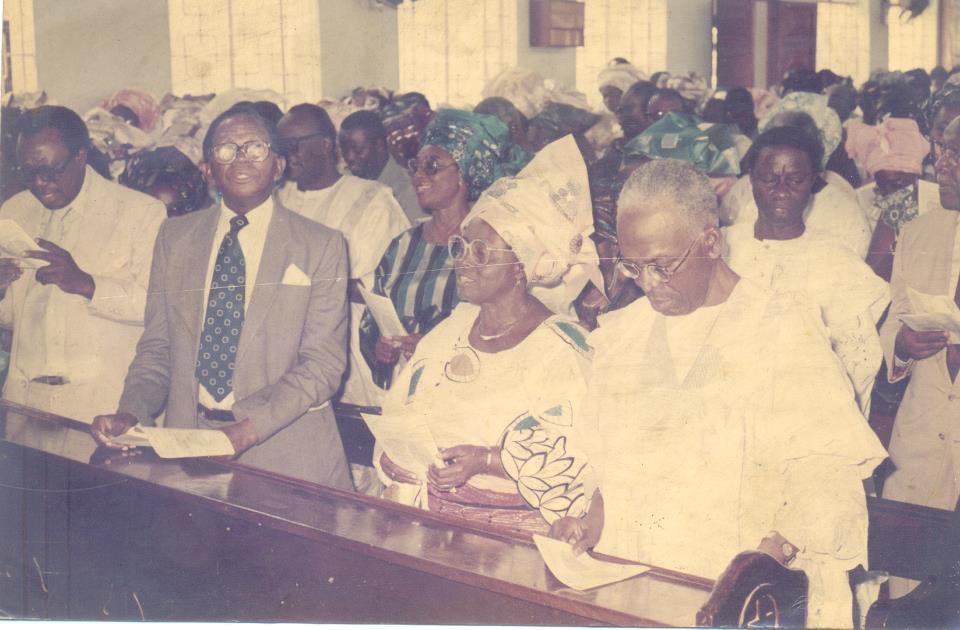
Although Awo frequently used the jewel-of-inestimable-value phrase on his wife, he never quite pinpointed why she deserved the now-ubiquitous praise. The son of a farmer and sawyer, Awo may never have bagged his law degree from the University of London without his wife. And truly, it is difficult to estimate the value of a wife who, with three children and expecting one more, gave her husband the nod to travel overseas in pursuit of education, and worked hard to raise those children while sending money to her student-husband.
“In the early years of their union, Awolowo seems to have closely emulated a contemporary western model of marriage and insisted that his wife did not work outside the house. However, when he left Nigeria in 1944 to study law in London, he began to appreciate Hannah’s aptitude for business,” Nolte writes.
Advertisement
“By that time, Hannah had given birth to three children and was pregnant with their fourth. She and the children stayed in Nigeria, and she supported herself and the children financially throughout the period of his stay abroad by trading in locally made and imported dresses, hats, shoes and bags. On top of this, she also sent money to her husband in the UK.”
Reminiscing on the time decades after, HID would say: “Occasionally, he [Awolowo] used to ask for the source of the money, but since he needed the money which I used to send him from my little business, he had no choice but to keep his calm, because he was in no position to object in far away London.”
SUBJECT OF INESTIMABLE REWARD
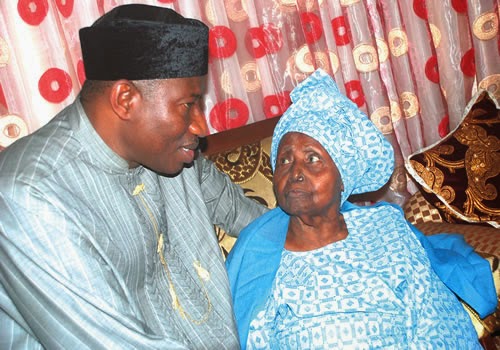
Awo was soon done with the UCL; he was called to the Bar by the Honourable Society of the Inner Temple on November 19, 1946. Three years later, he founded the Nigerian Tribune, which has gone on to become Nigeria’s oldest surviving private. His return to Nigeria boosted his political career, as he played a front-line role in the push for Nigeria’s independence.
Although Awo was a federal commissioner for finance and also vice president of the federal executive council during the civil war, he is better remembered for his outstanding performance as first premier of the western region. His free primary education for all and free health care for children in the western region earned him cult followership among the people. He also established the first television service in Africa in 1959; and all these he did by driving the cocoa industry to become the mainstay of the regional economy. So loved was Awolowo that he was named leader of the Yorubas.
Advertisement
When Awo died in 1987, his political and business capital were there for HID to fall back on. Although she kept a low profile and liked to remain at her Ikenne home, she was courted by the heavyweights of the country’s political class. Until her death, she was chairman of the paper founded by Awo. In the end, HID reaped where she sowed!
NO MORE PAIN, NO MORE SORROW
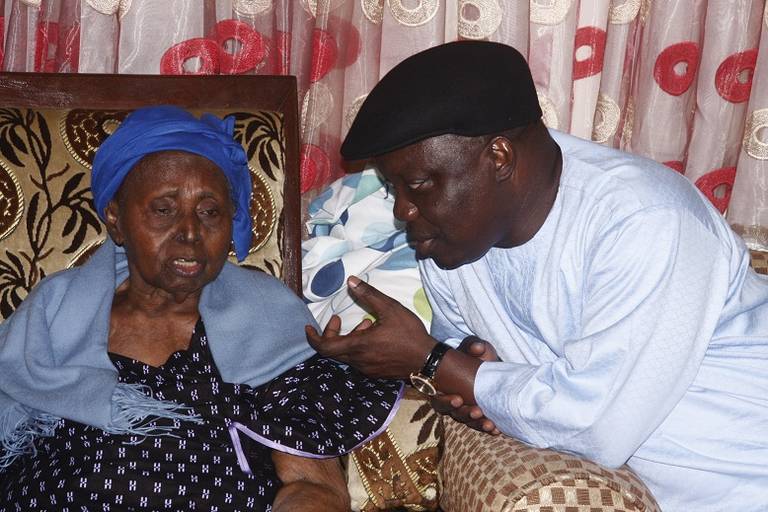
As a consequence of living for just two months short of a century, HID endured the indignity of having to bury her children and grandchildren. When Oluwole, her son who was publisher of Tribune died in London in 2013 aged 70, HID was inconsolable.
Advertisement
“Oh Wole, my dear son! Why now! Is it a sin to live long? My parents lived long, why should longevity become a curse in my own case?” she wailed.
And, addressing the clergymen who came to break the news to her, she said: “Bishop, you said I would not witness any more unfortunate incident. Bishop, you said I would not witness any sorrow again. Bishop, you said I would not witness any more pain.”
Advertisement
If the “ideal wife”, as Awo described her, had her way, she would have conferred on her children, the longevity she enjoyed. Having to bury her own children was a pain she wished she didn’t witness. In death, Hannah Idowu Dideolu will be happy to be finally free from that pain. It may have taken longer than desired, but the bishop’s prophecy has now come to pass: no more will she witness “any sorrow again”.
Advertisement

